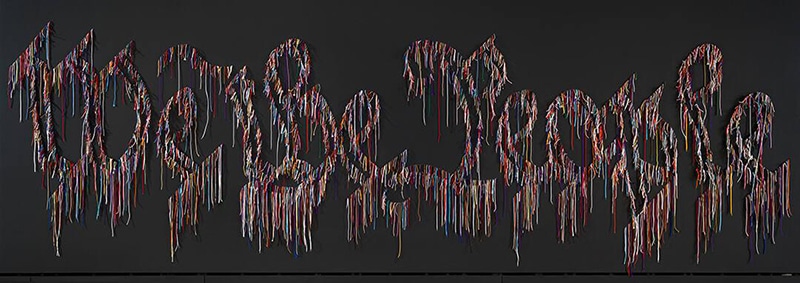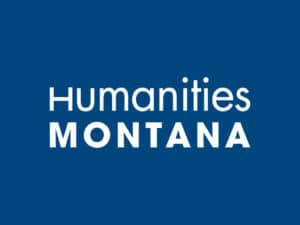Letter from the Director

Crystal Bridges Museum of American Art, Bentonville, Arkansas
Author and podcast host Gretchen Rubin talks about that “America feeling,” the feeling she gets when she votes or hears the classic Schoolhouse Rock songs about the Constitution or a bill becoming a law. I recently had that “America feeling” when I visited Crystal Bridges Museum in Bentonville, Arkansas. The museum opened in 2011 and houses a world-class collection of American art. Crystal Bridges is funded by the family foundation of the late Sam Walton, the founder of Walmart Inc. You can’t get more American than that.
Covering the wall in the first gallery is an immense installation of the words “We the People” in their very recognizable calligraphy. Found-object artist Nari Ward crafted this iconic phrase from the Constitution entirely in shoelaces. The accompanying description explains, “There is no single narrative of American art and history. Multiple perspectives, stories, and experiences continually shape the nation’s identity.”
The museum deliberately places art from the United States’ diverse traditions in conversation with each other: A familiar Thomas Cole landscape painting from the 1800s might be paired with a present-day sculpture by an Indigenous artist, raising questions of what it means—and has meant—to be an American. Such questions, though, may make us realize that American history is fraught with inconsistencies and that “we the people” has often had a very limited definition. In recent years, many of us have been left wondering how, and even if, we can address these questions while still having that “America feeling.”
“Reflective patriotism” is an approach to civics education and American history that connects love of country with a clearsighted examination of the United States’ unequal history. This concept was developed by Educating for American Democracy, a collaboration of experts with diverse viewpoints whose bipartisan goal is “to recommit to the education of our young people for informed, authentic, and engaged citizenship.”
At Humanities Montana, we provide opportunities for reflective patriotism through our Democracy Project, which engages teens in civic action through partnerships with local libraries. This spring, we conducted our Why It Matters initiative, virtual panel discussions that explored issues such as the history of protest and the urban/rural political divide. If you are looking for that “America feeling,” I invite you to watch these four recorded virtual panels. This summer, high school students from around Montana will participate in a journalism camp funded by our Informed Citizen initiative to continue that exploration.
The humanities have been at the heart of questions of what it means to be a citizen since the eras of the early Greek and Roman republics, and the humanities continue to play an important role in reflective patriotism in the present day. Over the recent Fourth of July holiday, I hope you were able to reunite with friends and loved ones, feast on some rhubarb pie, and experience that “America feeling.”
Yours in reflective patriotism,
Randi Lynn Tanglen, Ph.D.
Executive Director




